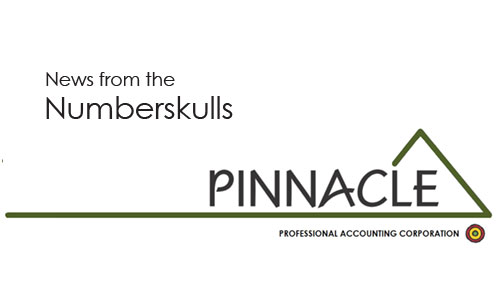ADVERTISING FEATURE: How much is my business worth?
As a small business owner, you probably wonder from time-to-time how much the business you’ve built is worth.
There is no easy or straight-forward answer to the question “How much is my business worth?” It may be worth more to you than it would be to someone else – after all, you built it. It’s your sweat and tears (and sometimes blood) that’s invested.
However, we must sometimes try to place a number on the value of a business – whether it’s because you are considering selling it, you want to know how much capital you have available for retirement, or maybe you’re simply curious.
Why value my business?
If you can’t think of a good reason to place a value on your business, you are probably still focused on its growth and operations. Once you get to a place where you can sit back and take a look at the bigger picture, it becomes important to know what you’ve got in order to plan for the future from different standpoints – personal, legal, and accounting (tax).
Over-valued?
Often, small business owners are shocked at what their business would actually be worth on the market. There is a tendency to overvalue businesses that we have built from the ground up.
Valuation methods
There are a number of objective methods which we use to value businesses. The method used depends on a number of factors, including industry, objectives of the valuation, the type of operations and asset mix within the company, and what stage of development the business is at.
If you are relying on your incorporated business to support your retirement objectives, a quick and simple way to know how much you’ll have available in the future is to look at the balance of your company’s retained earnings. These are your assets minus your liabilities, and although this method doesn’t account for changes in market value, it at least gives you a ballbark figure.
If you want a valuation because you are considering the purchase or sale of a business, generally one of two broad valuation methods would be used:
Asset-based approach: An asset-based approach takes the position that an investor would not pay more for a business than the sum of the business’s parts. The method essentially comes down to valuing the assets in a business (i.e. how much cash could be had if everything in the business was sold off). This approach is usually relatively simple and if you are a small business owner with an intimate knowledge of your assets you may be able to hazard a pretty safe guess at your business’s “liquidation” value.
Income-based approach: An income-based approach is slightly more complicated, and takes the position that an investor would likely pay more for the business than the sum-of-all-parts value. Income approaches acknowledge the fact that a company may own “intangible” assets, such as name brand, loyal customers, or amazing employees (like ours). To perform an income-based valuation, there are a number of similar but distinct approaches we may use:
First, we could look at the stream of revenues or cash flows the business generates, and we would capitalize the total using a “multiple” in order to arrive at a value. The multiple would be determined based on industry as well as specifics of the business.
Secondly, we could make an estimate of what cash flows the business could be expected to generate in the future, and we could discount this to what the present value of these future cash flows would be based on the time value of money. (If you’re lost, don’t worry – income-based approaches require much training and practice in order to fully understand their underlying fundamentals and use).
Depending on your motivations, you may want your business to be worth as much as possible (selling) or as little as possible (buying out a partner). It’s important to get an expert’s opinion on what the value is before you make a decision to buy or sell a business.



























Comments